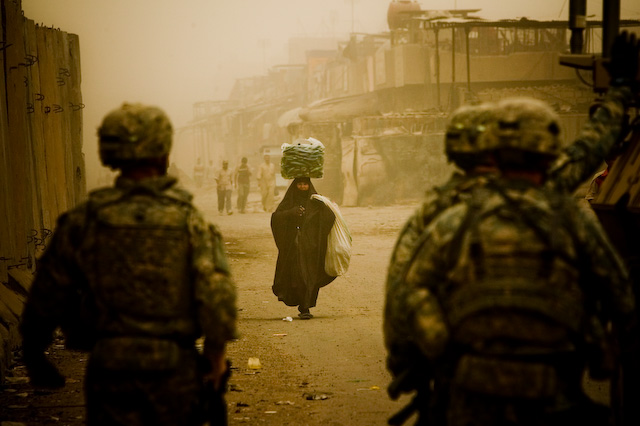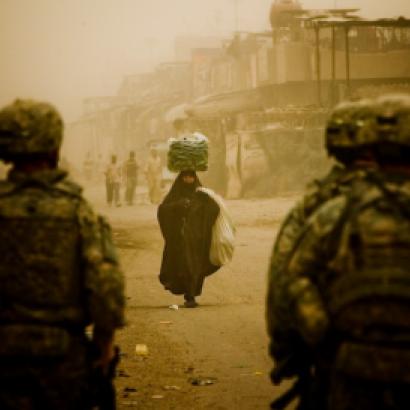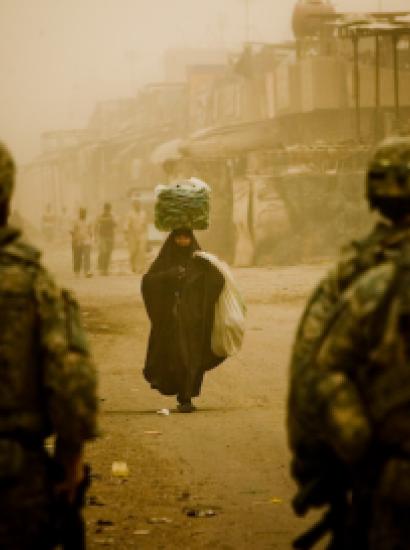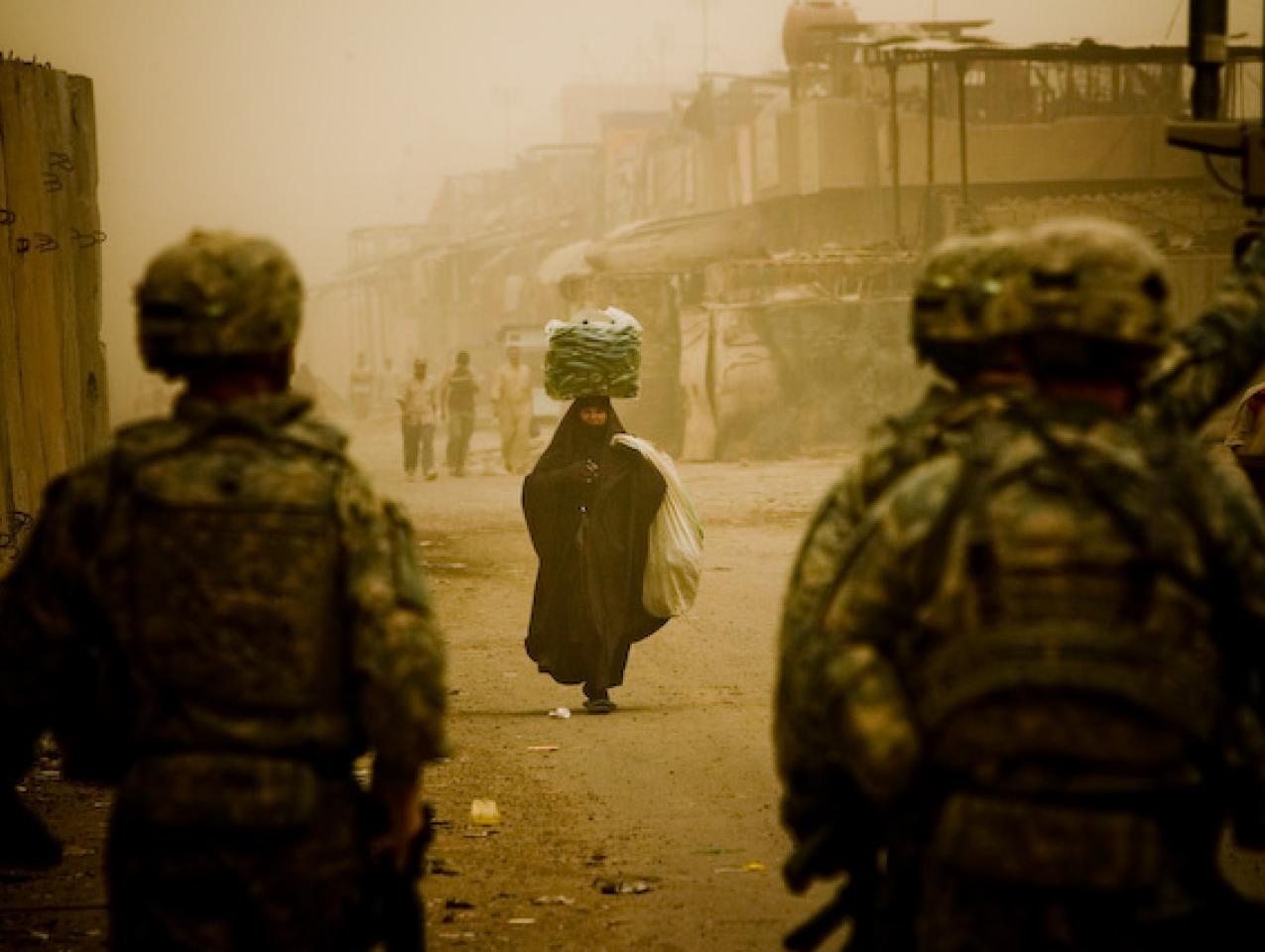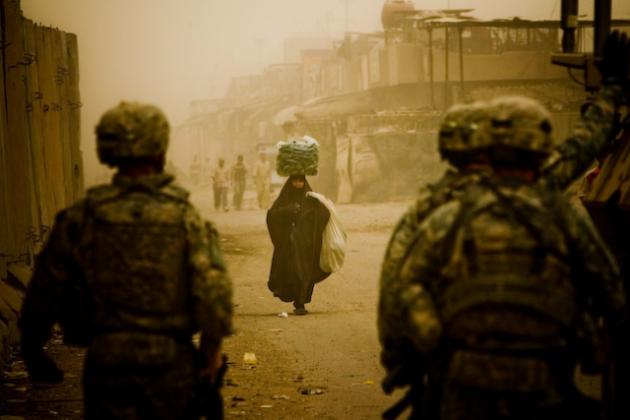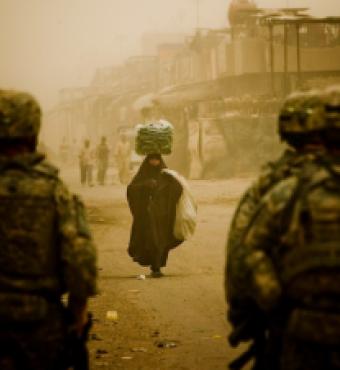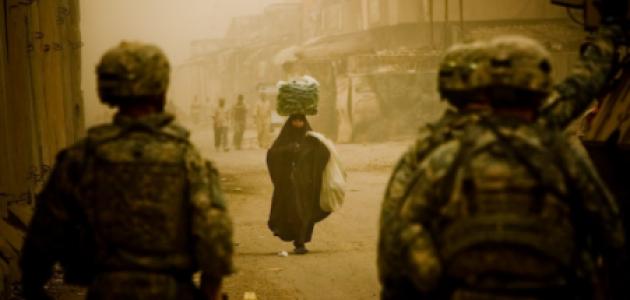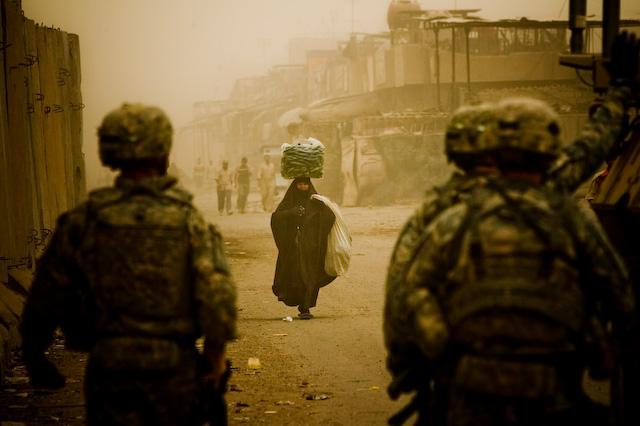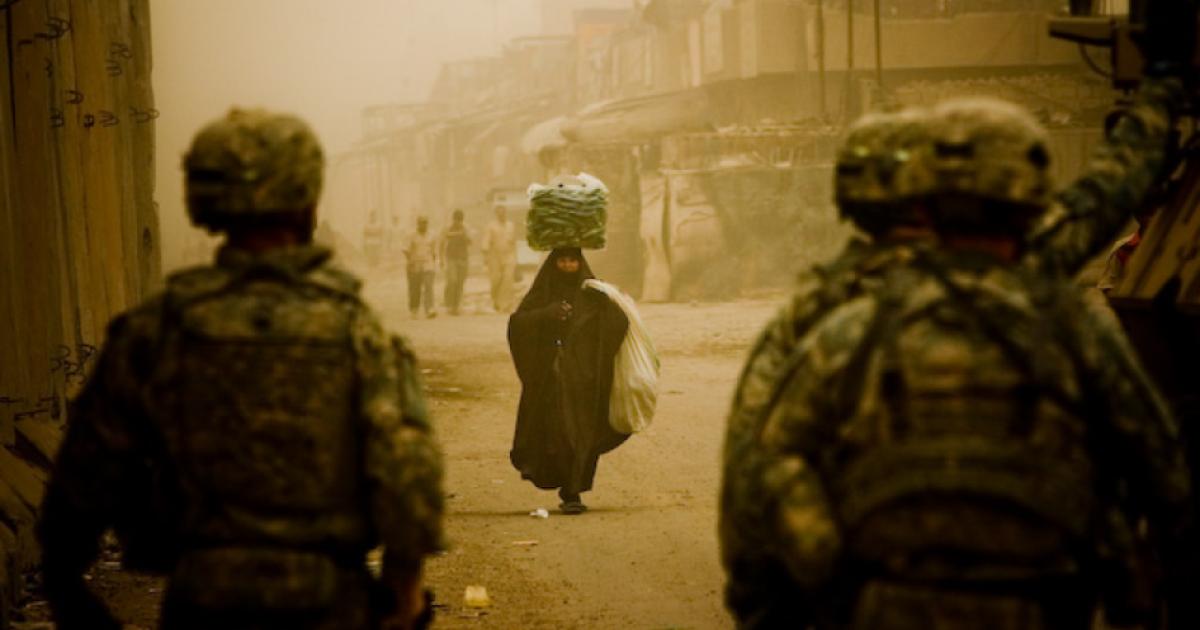- Security & Defense
- US Defense
- International Affairs
- US Foreign Policy
- History
- Military
- Contemporary
- US
- World
- Law & Policy
- Civil Rights & Race
For most of its history the United States has vacillated among different foreign policy philosophies. Today we face a world in which our rivals and enemies have been emboldened by our seeming retreat from being the dominant power a globalized economy needs to ensure order and stability. Our current inability to decide on a course of action, however, is a dangerous inflection point that may lead to increasing global disorder and the decline of America’s power to protect its security and interests.
When America was a new nation, it wanted to avoid the quarrels of the Old World and its “entangling alliances,” as Thomas Jefferson called them, echoing George Washington’s warning against “permanent alliances.” The United States should influence other nations as an “example” of ordered liberty, a sentiment famously expressed by John Quincy Adams in 1821: America should be a nation of “well-wishers to the freedom and independence of all,” but one that “goes not abroad, in search of monsters to destroy.”
Yet even in its youth, the United States found itself embroiled in European wars. The global trade created by the British Empire, and the Napoleonic Wars that followed the French Revolution, necessarily led to conflict with other nations—as when Britain imposed a naval blockade on trade between France and America in 1812, leading to the War of 1812. During the early stages of economic globalization, the U.S. received a lesson in the limits of isolationism.
Since then, the nations of the world and their interests have become even more tightly knit together. These global interconnections have made the question of American foreign policy more complex. Four broad philosophies of interstate relations have developed, and they set the terms of our current debates about America’s role in the world.
“Isolationism” still runs deep in an America created by settlers who put distance between themselves and the old world, and later migrated into the vast western frontier. Unsurprisingly, isolationism regularly recurs in our history, particularly in the aftermath of wars. After World War I, a strong strain of isolationism set the tone of American foreign policy in the following two decades, most obviously in the Senate’s refusal to ratify the 1919 Versailles Treaty. As Theodore Roosevelt said, in words published posthumously, “I do not believe in keeping our men on the other side to patrol the Rhine, or police Russia, or interfere in Central Europe or the Balkan peninsula.” In our day, the long, unfinished wars in Iraq and Afghanistan have aroused in many Americans a similar “pox on both your houses” sentiment towards foreign conflicts in distant lands. Barack Obama campaigned for president in part on promises to end both those wars—and indeed in Iraq he honored his pledge, removing American troops in 2011.
Subsequent developments, particularly the rise of Islamic State and the brutal Syrian civil war, have reaffirmed, for many, that hasty disengagement will create chaos and require the United State to reengage in order to protect its interests and security. Even President Trump, who opposed the Iraq war and campaigned at times as an isolationist, has been putting more troops into the Middle East, despite opposing such a move during the presidential campaign.
A second foreign policy approach has been dubbed “Jacksonian” by historian Walter Russell Mead. Briefly, Jacksonians recognize that conflicts with foreign nations will arise and that American security and interests will require the use of force abroad. But when going to war, our goals should be to use overwhelming, even brutal, force to end the conflict quickly and at the least cost in American lives and resources. Victory should be definitive and indisputable, and “limited wars” to achieve idealistic aims should be avoided. As Mead writes, “Either the stakes are important enough to fight for––in which case you should fight with everything you have––or they are not, in which case you should mind your own business and stay home.” Though magnanimous in victory, Americans should eschew prolonged nation-building or further interference in other countries. America should fight to defend its interests and security, or to punish unjust aggression against it, but not to destroy international monsters.
Jacksonian foreign policy resembles “realism.” Like Jacksonians, realists put America’s interests and security as the most important foreign policy goals. During the Cold War, realists believed that the containment of communism required alliances and coalitions with unsavory anti-communist countries despite their illiberal or authoritarian governments. Realists hold that America must also be ready not just to commit military forces to fighting regimes that threaten our interests, but also to station troops and military assets to bases abroad in order to deter aggression. Isolationism or swift, limited engagements are not feasible in a world of expansionary regimes that require alliances like NATO and a constant U.S. military presence abroad to keep conflicts from erupting into major wars.
The fourth major view of American foreign policy can be called “moralizing internationalism,” to use historian Corelli Barnett’s phrase. Economic interdependency among nations, technological developments improving human life, and the success of liberal democracy and free-market capitalism in creating global order and economic cooperation have all led to transnational institutional norms and structures intended to secure these improvements and expand them throughout the world. Nor is the aim purely altruistic, as proponents argue. America’s interests and security are dependent on the adoption of the Western model by other nations. Though the “soft power” of diplomacy, negotiation, and foreign aid should be preferred for achieving these goals, American force should be used when necessary in a way calculated to create the conditions for effecting this improvement by eliminating those who would oppose it.
This ideal of using war to create a better world has been a powerful component of U.S. foreign policy for more than a century. In 1917, Woodrow Wilson argued for U.S. involvement in World War I as a way to make the world “safe for democracy” and “to vindicate the principles of peace and justice in the life of the world.” All peoples should “prefer the interests of mankind to any narrow interest of their own,” since “the common purpose of enlightened mankind has taken their place.” In the last days of the Soviet Union, George H.W. Bush in his 1991 State of the Union address similarly spoke of a “new world order,” in which “diverse nations are drawn together in common cause to achieve the universal aspirations of mankind––peace and security, freedom and the rule of law.”
His son George W. Bush, in the 2002 National Security Strategy, similarly defined U.S. foreign policy as promoting a “single sustainable model for national success: freedom, democracy, and free enterprise,” for “these values of freedom are right and true for every person, in every society.” Later, in his second Inaugural Address, he added, “The survival of liberty in our land increasingly depends on the success of liberty in other lands. The best hope for peace in our world is the expansion of freedom in all the world.” And Barack Obama, despite his policy of reducing American involvement abroad, in his 2009 Cairo speech spoke of universal political goods such as “the ability to speak your mind and have a say in how you are governed; confidence in the rule of law and the equal administration of justice; government that is transparent and doesn’t steal from the people; the freedom to live as you choose. These are not American ideas; they are human rights. And that is why we will support them everywhere.” Obama, of course, preferred “soft power” for achieving these aims over the large-scale military force that accompanied Woodrow Wilson’s and George W. Bush’s efforts to turn these ideals into reality.
Most Americans adopt one of these views of foreign policy, or shift between them, or even endorse two or three simultaneously, depending on circumstances such as the length of the conflict, its seeming lack of progress, and its costs in lives and resources. The wars in Iraq and Afghanistan are examples of this inconsistency. At first, both wars were supported as righteous, Jacksonian punishments of a savage enemy. As the wars grew more difficult, dissatisfaction led some to favor withdrawing. Likewise, nation-building—when it seemed able to repeat the successes in Germany and Japan after World War II—garnered support. Most Americans were moved by the photos of Iraqi women whose purple thumbs showed they had voted in a free election. But the violent refusal of the occupied peoples to cooperate with our nation-building program in order to achieve the boons of freedom, democracy, and prosperity soured voters on the nation-building projects.
At this moment, we seem to be in a “soft” Jacksonian mood regarding the complex conflicts in Syria and Ukraine. Voters responded positively to Donald Trump’s campaign promise to “bomb the [expletive] out of ISIS,” and, so far, do not seem worried about his escalation of troops in the region. They cheered the cruise-missile attack on the Syrian airbase, and the dropping of the “Mother of All Bombs” on an ISIS cave complex in Afghanistan. Of course, this mood can shift rapidly depending on events. The longer the conflict persists, and the more casualties and costs are incurred, the more impatient the voters will become. And when our political leaders are hostages to biennial ballot-box accountability, the vox populi cannot be ignored.
But this vacillating foreign policy has led to the dangerous world we inhabit today. The United States is facing challenges to its global authority and its role in being the “sheriff” of the global marketplace, to use foreign policy theorist Robert Kagan’s metaphor. Russia is annexing territory, threatening NATO members, and is for now the hegemon in the Middle East. Iran is trying to create a “Shia Crescent” from Iran to Bahrain, and developing nuclear weapons to buttress its ambitions. China is conducting a slow-motion takeover of the South China Sea, at the expense of our allies South Korea and Japan, and some of the major sea lanes vital for global trade. And the thug-regime in North Korea just developed an intercontinental missile capable of reaching Alaska, and continues to work on nuclear warheads that can be delivered by missiles.
This state of affairs is in part the consequence of America’s retreat under the foreign policies of the previous administration, policies approved by the millions of Americans who twice elected Barack Obama as Commander in Chief. So now what? Do we stay in Fortress America, emerging only to punish attacks on the homeland? Do we continue to act as a flaccid “soft power” scorned by brutal men willing to kill indiscriminately to achieve their goals? Should we aim for a “limited war” of air strikes, leaving our proxies to do the heavy lifting? Or should we pursue a “hard” Jacksonian response that involves a full commitment of military resources and lives, with all the “exorbitant risk” and uncertainty that Henry Kissinger reminds us always attends the use of lethal force?
Hard questions indeed—but the answers cannot be formulated without taking into account the American people. In any conflict the enemy has a metaphorical vote, but the citizens have a literal one. Their will is the “x factor” whose value no theory of foreign policy can calculate or predict. Whether America remains in retreat or reverses course, it will be because that’s what the American voters want—until the resulting instability drives voters to demand a change.







